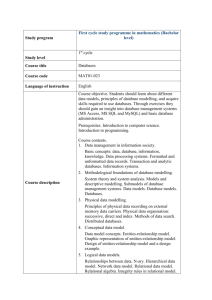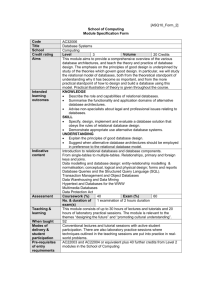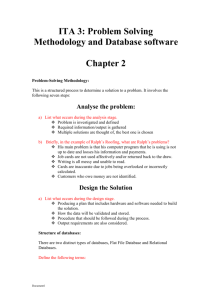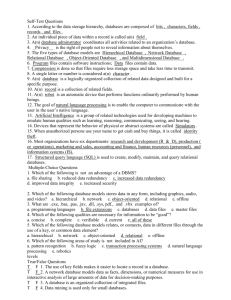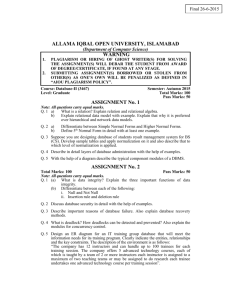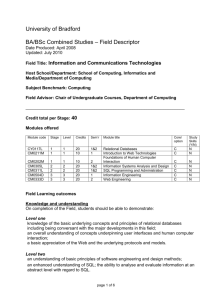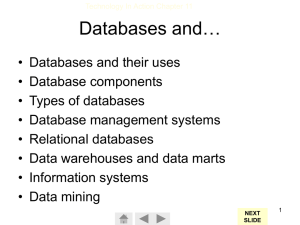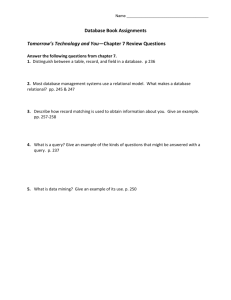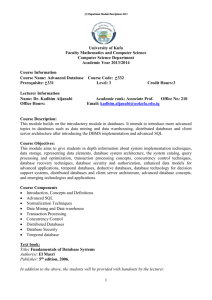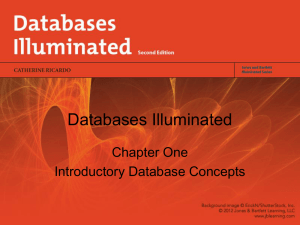Module Descriptor 2012/13 School of Computer Science and
advertisement
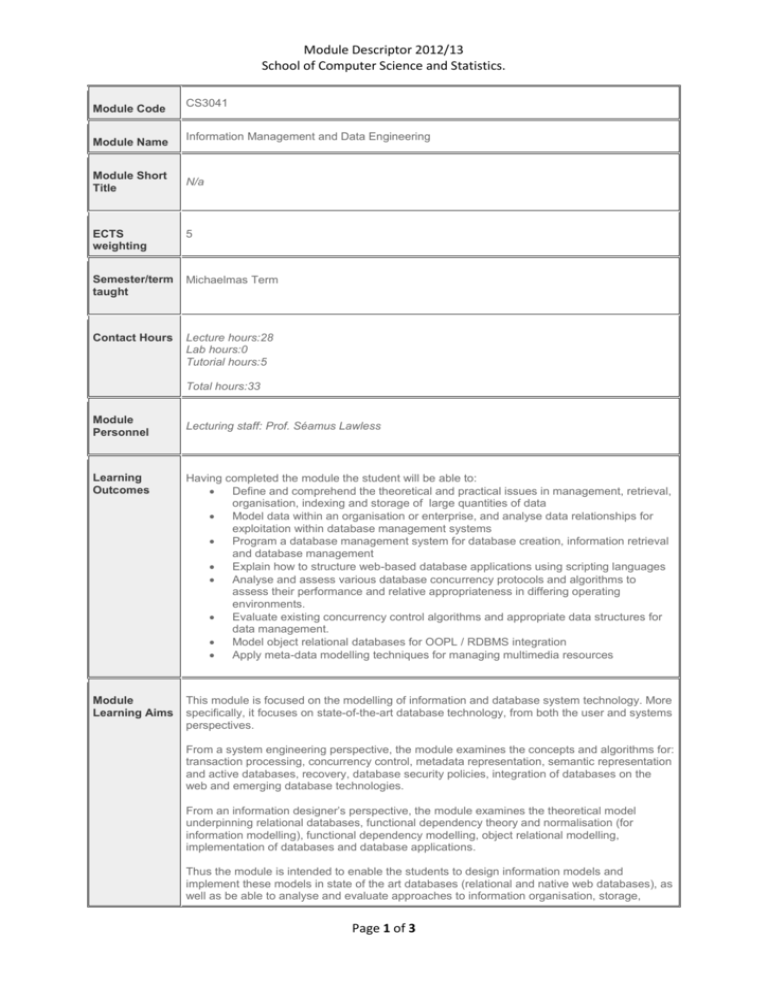
Module Descriptor 2012/13 School of Computer Science and Statistics. Module Code Module Name Module Short Title CS3041 Information Management and Data Engineering N/a ECTS weighting 5 Semester/term taught Michaelmas Term Contact Hours Lecture hours:28 Lab hours:0 Tutorial hours:5 Total hours:33 Module Personnel Lecturing staff: Prof. Séamus Lawless Learning Outcomes Having completed the module the student will be able to: Define and comprehend the theoretical and practical issues in management, retrieval, organisation, indexing and storage of large quantities of data Model data within an organisation or enterprise, and analyse data relationships for exploitation within database management systems Program a database management system for database creation, information retrieval and database management Explain how to structure web-based database applications using scripting languages Analyse and assess various database concurrency protocols and algorithms to assess their performance and relative appropriateness in differing operating environments. Evaluate existing concurrency control algorithms and appropriate data structures for data management. Model object relational databases for OOPL / RDBMS integration Apply meta-data modelling techniques for managing multimedia resources Module Learning Aims This module is focused on the modelling of information and database system technology. More specifically, it focuses on state-of-the-art database technology, from both the user and systems perspectives. From a system engineering perspective, the module examines the concepts and algorithms for: transaction processing, concurrency control, metadata representation, semantic representation and active databases, recovery, database security policies, integration of databases on the web and emerging database technologies. From an information designer’s perspective, the module examines the theoretical model underpinning relational databases, functional dependency theory and normalisation (for information modelling), functional dependency modelling, object relational modelling, implementation of databases and database applications. Thus the module is intended to enable the students to design information models and implement these models in state of the art databases (relational and native web databases), as well as be able to analyse and evaluate approaches to information organisation, storage, Page 1 of 3 Module Descriptor 2012/13 School of Computer Science and Statistics. transaction support and management. Module Content Specific topics addressed in this module include: Overview of database systems and users Database system concepts and architecture Relational database management Relational model Functional dependency theory and normalisation On-line module on SQL (relational database query language) SQL/PL (SQL as a programming language) Transaction processing Query processing Concurrency control Modelling semantics Active databases Database recovery Security and authorisation Object-oriented database systems Software engineering for database applications and database development Integration of web-based technology and databases (PHP-based web database applications) Object relational DBMSs Web databases Metadata models for open content management Recommended Fundamentals of Database Systems by Elmasri & Navathe (6th Edition) published by Addison Reading List Wesley; Database Systems 5th Edition, Connolly & Begg, published by Addison Wesley. Database Systems – The Complete Book, by Garcia-Molena, Ullman & Widom, published by Prentice Hall; Module Pre Requisite None Module Co Requisite None Assessment Details Module approval date [Edit] Approved By [Edit] % Exam: 75 % Coursework: 25 Alongside the lectures, a full online course on the application of database language SQL is delivered. This online course must be taken by all students taking this module. Project work which integrates the lectures, tutorials and online course accounts for 25% of the module’s overall mark. Attendance at all lectures and tutorials is compulsory. N/a N/a N/a Page 2 of 3 Module Descriptor 2012/13 School of Computer Science and Statistics. Academic Start Year [Edit] Academic Year N/a of Data [Edit] Page 3 of 3
